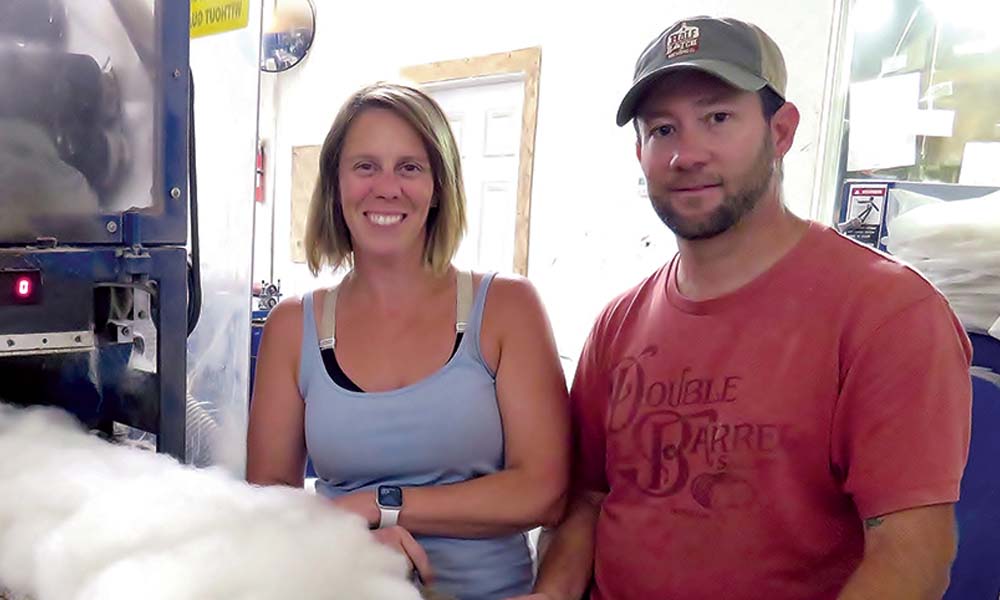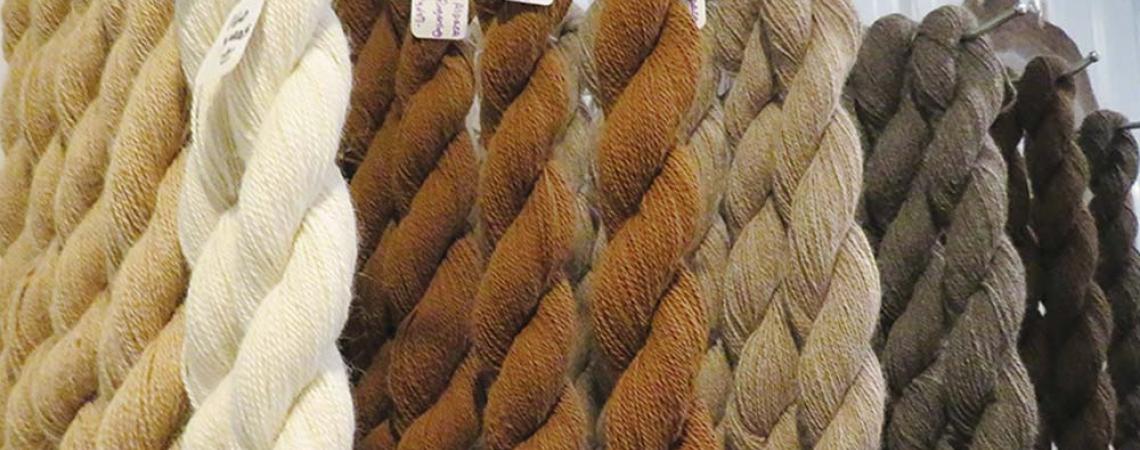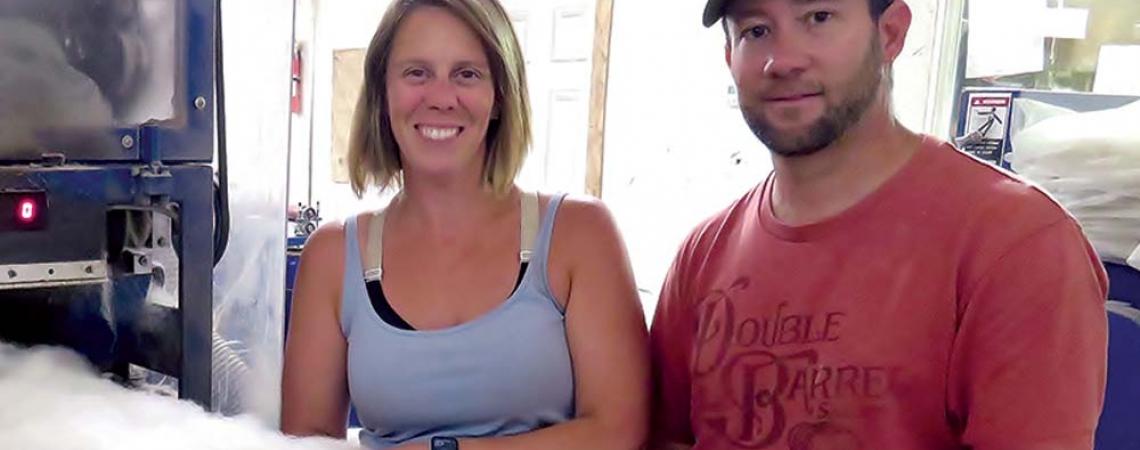When a young woman approached Robbie and Carrie Davis about making the yarn for her wedding shawl, they readily obliged. The bride-to-be wanted the yarn to contain fleece from a specific alpaca, so they created an alpaca-silk blend especially for her. “She’ll use our yarn to weave the shawl herself and eventually will pass it on as a family heirloom,” says Carrie. “That just gives me chills.”
Robbie and Carrie are Butler Rural Electric Cooperative members who operate a fiber mill — America’s Natural Fiberworks (ANF) — at Blessed Criations, the 11-acre farm near Oxford where they also make their home.
A close-up look at some of their alpaca-shorn yarns.
A cria is a baby alpaca, and the farm’s name was inspired by the couple’s years of alpaca industry experience. They acquired their first alpacas in 2006 and soon began breeding and showing the animals at fairs with help from their son, Jessie, who is now 20 and an aviation technology student at Sinclair Community College. Alpacas don’t shed, so Robbie and Carrie became adept at shearing.
Soon, breeders began to hire them to shear, and the couple noticed that shaved fleece was usually discarded. They opened the mill in 2012 to convert raw alpaca fiber into yarn or felt. Carrie learned to card and spin by hand, and Robbie, who had been an ironworker for 20 years, quit his job to tend their fledgling cottage industry. As word about the mill spread and orders increased, they wanted to expand, but banks balked at lending money to a mill. That’s when Kim and Brad DeLaney, of Ohio’s KB Alpacas, invested in ANF and helped the Davises purchase equipment. “We originally thought we could get harvested fiber from within a 50-mile radius,” says Robbie. “Now we have customers in 42 states, including Alaska and Hawaii.”
Because of ANF’s success, Robbie and Carrie reduced the size of Blessed Criations’ herd. “We decided that if we couldn’t give 100% to our alpacas, we shouldn’t be breeding and selling them,” says Carrie. The couple still owns or co-owns animals being raised at KB Alpacas and other breeding farms.
The Davises outfitted ANF with equipment manufactured by Belfast Mini Mills, a Canadian company specializing in machinery for processing small batches of fiber. Because of difficulties finding and keeping employees, Robbie and Carrie run the mill themselves and have upped their productivity by doubling its equipment. “We have two of everything except for the washer and the picker,” says Robbie. He and Carrie process about 7,500 pounds of fiber annually. “That’s a lot for two people,” notes Robbie. “We’ve been told that the next-highest-producing mini-mill is in Tennessee and does 4,000 pounds a year with full-time help.”
Robbie estimates that the United States has about 125 mini-mills. “Around 50% of them are full-service mills like ANF,” he says, “and the rest are limited to making things like rug yarn.” Besides two- and three-ply yarns, Robbie and Carrie turn out roving, batting, rug yarn, felt, and lopi, a very long, single-strand yarn made from Icelandic sheep wool. They also do small weaving projects, create rugs, and dye yarns for customers. “We just made scarlet and gray yarn for someone who wanted Ohio State’s colors,” says Carrie.
Though they focus on alpaca fleece, the Davises will give any natural fiber a whirl and have processed hair from bison, yak, goats, rabbits, cats, and dogs. “What differentiates us,” says Carrie, “is that we’ll do fiber from individual animals. Sometimes people even ask us to put a card with an animal’s picture on a finished skein of yarn.”
Robbie and Carrie work with 250 to 300 customers every year. “The majority are repeats,” says Robbie. “Most are small alpaca farms or individuals, like the lady who buys fleece and pays us to turn it into yarn that she sells online.” Taking great pride in the mill, the Davises love it when people send them photos of items made with ANF yarn, and for them, that strong fabric of relationships is a source of satisfaction that more than compensates for the constantly clattering machinery, long hours on their feet, and late nights spent washing fleece.
The quality of their work got a big pat on the back when a well-known breeding farm in Colorado recently chose ANF to make yarn from its prize alpaca’s fleece. “We were super excited to get fleece from the top animal of a top breeder,” says Carrie, “and the fact that they trusted us with it is something that feels really good.”
America’s Natural Fiberworks: email blessedcriations@yahoo.com or visit www.americasnaturalfiberworks.com.











